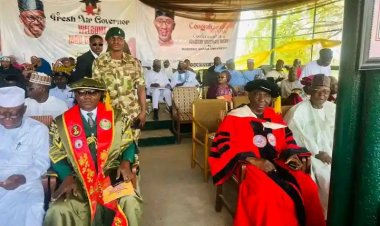TUC Vice President Affirms Union's Approach to Strikes Amidst Economic Hardship
Tommy Etim, the Vice President of the Trade Union Congress (TUC), reiterated the union's stance on strikes, emphasizing that they view strikes as a last resort rather than a preferred course of action amidst economic challenges.

In an interview on Thursday, Etim addressed concerns about the possibility of the TUC joining the Nigeria Labour Congress (NLC) in another strike action. He clarified that while the TUC supports the demands for improved welfare and public utilities access, they approach strikes cautiously, preferring to exhaust all other options before resorting to such measures.
The labour unions, including the TUC and NLC, have been engaged in negotiations with the Federal Government regarding various issues, including wage increments and the removal of fuel subsidy, amidst economic difficulties.
RECOMMENDED FOR YOU;UTME Candidates Encounter Registration Challenges Due to SIM Card Issues
Earlier in February, both the NLC and TUC issued ultimatums to the Federal Government, with the NLC subsequently declaring a two-day protest after the expiration of their ultimatum. However, the TUC opted out of the planned protest.
Responding to inquiries about apparent disagreements between the two major labour unions regarding strike actions, Etim emphasized that decisions regarding strikes must be approved by the National Executive Council (NEC) and should not be taken lightly. He stressed the importance of strike actions as a last resort and cautioned against their frequent use, noting that repeated strikes could diminish their effectiveness.
Etim's remarks shed light on the TUC's approach to addressing labour issues and advocating for the rights of workers in Nigeria. As discussions continue between labour unions and the government, stakeholders await further developments, hopeful for constructive dialogue and meaningful resolutions to the challenges facing the workforce.





